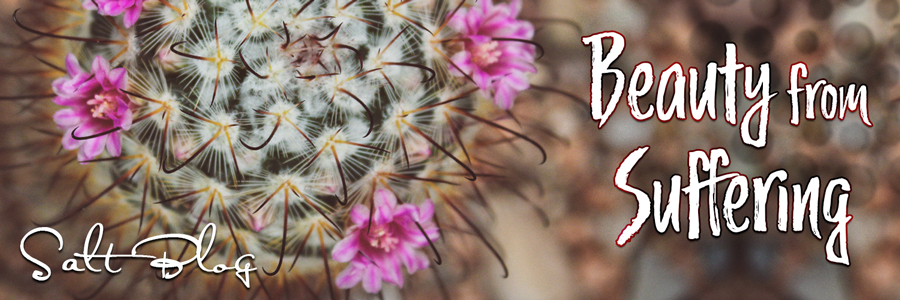I do not like to suffer. I also do not like you to suffer! I would really like to skip suffering all together.
Suffering. I looked up the definition. To experience or be subject to something bad or unpleasant. To be forced to endure. Yuck! Honestly, that sounds no fun. Suffering is not a subject I like to dwell on. I am not a fan. I’d rather not. And I would rather you didn’t have to either.
But the truth is, we can’t avoid suffering. Sometimes life is hard. It just is. When someone who we love does something that hurts our feelings. When someone outright betrays our trust. When we feel left out. When we feel alone. When we are misunderstood, or not heard. When hard things happen to us or to people we care about. When we are not well. When we’re in physical pain. When someone dies. The list goes on. And I guess there is no denying it… sometimes life is hard. Sometimes there is suffering.
It’s coming up on Easter. And suffering is a part of Easter. Honestly, I used to wish it wasn’t. I would rather skip to the resurrection. Come on! New life, death defeated, Heaven coming to earth, victory! Aren’t we glad this is our reality? YES!!!!
But before the celebration, Jesus asks us to come with Him to the cross. He invites us to walk with Him through His last days, His last moments, and right up to the end. Why?
Does He want to teach us the significance? Does He want to model some things? Does He want us to see how much He loves us? Yes! But He is also offering us a gift. The gift of being with Him in His suffering.
In Luke 23:49, after Jesus took His last breath on the cross and the crowds watching had gone away, the Bible says: “But standing off at a distance were some who truly knew Jesus.” Selah. Who was with Jesus at this end? Who walked with Him all the way? Through the betrayals, through the crowds’ hate, through the pain and the beating, through the brutal rawness, through the ultimate suffering? Who was still there? It was those who truly knew Jesus.
Wow. That made me think of my life, my suffering. Who are those I want by my side at my worst moment? And who will stay until the end? Who do I invite into my suffering, and who’s suffering am I willing to endure? The answer - those who truly know me.
Once wonderful friends of mine called to tell me the terrible news that their daughter had unexpectedly passed away. I was heartbroken for them. I was heartbroken for me too, because I loved their daughter. I got off the phone and was in shock. I didn’t know what to do. I called them right back and asked if I could come be with them. They said yes, and I dropped everything and went. It wasn’t even a question. I wanted to be with them and they wanted me there, and there was nothing else I could do but go. I didn’t have any way to make it better, I couldn’t change what had happened, I didn’t have any plan that could take away their suffering… but I could be there. Looking back, that to me was a sacred moment. They were inviting me into their suffering. What an honor that was to be there. And really all I could do was to be there, to be present, to witness and love in that moment. I will never forget it.
Sharing suffering is a gift. It’s generous. In a way that is deeper than a thought process, or something you can do, or a solution. Both offering the gift of inviting someone into your suffering and the gift of accepting the invitation. There is a cost to both. Sharing suffering is painful and helpless and vulnerable. But the reward is great.
I thought about that evening with my friends, sitting with them as the reality of their suffering was settling. I thought about others, who have been with me in my suffering. What are the results? What impact do these shared moments have? It changes you. The words don’t do it justice, but in an attempt to describe what happens in these moments between people, I would try words like trust, intimacy, friendship, security, honor, reliance... These words become real. They become a shared experience, a reality that you’ve had together, a deepening. Shared suffering is an experience that you both move on from changed.
And that is what Jesus invites us into. As we watch as He sweats blood in the garden, and we know He just wants us to be near. As He is wrongly accused, as He is stripped and mocked and beaten, but He knows someone who loves Him is close. As we hurry to find places to follow along the way, as we watch Him fall, and see Him catch our eye. As we stay as He struggles for breath on the cross, as we witness Him exchange a few last words and care for His mother. As the sky goes dark and the ground rumbles, and He takes His last breath. As He dies, we are there. Sharing that sacred moment. Truly knowing Him and offering our gift of presence. And we walk away changed.
Jesus, thank You for inviting us into experiencing this with You. Thank You that You will also be with us - in our worst, witnessing our ends, and present for our suffering. Thank You that our relationship with You includes intimacy, trust, security, friendship, honor, reliance, and real connection and relationship. That You endured the cross for the joy set before You, and that joy includes You thinking of each of us. Thank You for suffering, and for the gift of inviting us into it with You. Amen
Hebrews 12:1-2 (NKJV)
Therefore we also, since we are surrounded by so great a cloud of witnesses, let us lay aside every weight, and the sin which so easily ensnares us, and let us run with endurance the race that is set before us, looking unto Jesus, the [a]author and [b]finisher of our faith, who for the joy that was set before Him endured the cross, despising the shame, and has sat down at the right hand of the throne of God.
About the Author
Pam is a fun and encouraging team-builder that brings the best to those around her. She loves people and is committed to serving and mentoring kids, women and families with opportunities to grow closer to God and each other.
Pam is currently serving as Children and Family Pastor at Valley Christian Center in Albany. Pam and her husband, Jared, have been married since 2005 and have three boys. Their family will always be a much loved part of our CitySalt family.












